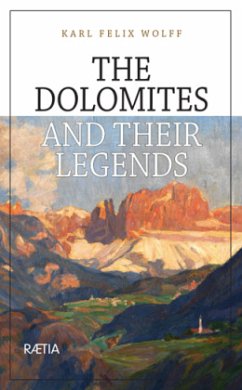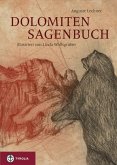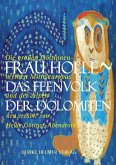The Dolomites, a range of mountains in the Southern Alps, are widely celebrated for their bizarre rock formations, light colour hues, and pristine nature. It is no coincidence that UNESCO declared the Pale Mountains a World Heritage Site and that, every single year, they attract tourists and nature enthusiasts from all around the globe. This enchanting mountain landscape, which is oftentimes cool and forbidding, has left an indelible mark on its inhabitants. Their veritable treasure trove of myths, legends and mystery stories is an integral part of the rich cultural heritage of the Dolomites: the older generation has always passed down this heritage to a wide-eyed audience comprised of both the young and the young-at-heart. This compilation by Karl Felix Wolff (1879-1966), probably the most prominent regional writer-explorer of legends, contains well-known tales like "King Laurin and the Alp-Glow" and "The Kingdom of the Fanes" in addition to lesser known stories such as "The Nightingale of the Sasslong", "Iron Hand" and "Merisana's Wedding". This book is a unique collection of legends that will shed a new and mystic light on your perspective of the Dolomites.








